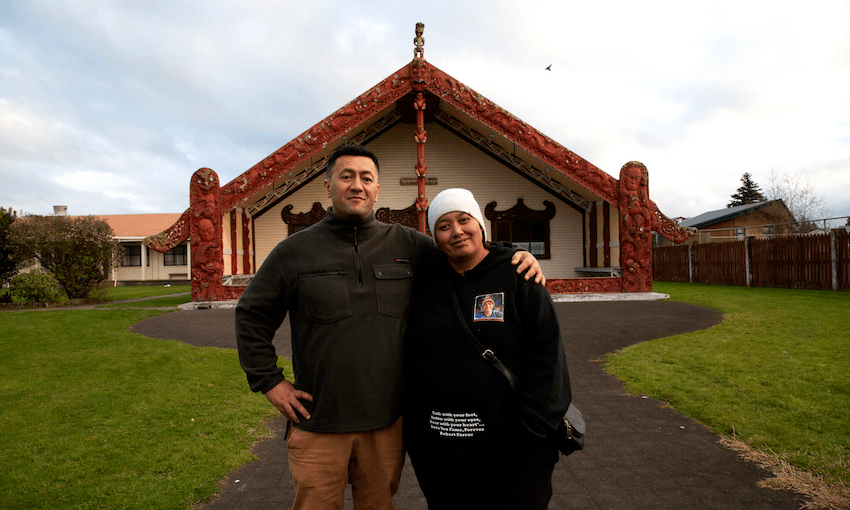Being shot by police had a profound, transformational effect on Rob Mokaraka’s life in more ways than you’d expect. A new documentary, airing on Māori TV at 7.30pm on Sunday, explores the work he’s done to heal his own mind and to ensure nobody has to go through the same pain he did.
Content warning: This story contains descriptions of suicide, violence and abuse, which may be triggering to survivors.
Rob Mokaraka was already a well-known actor before his most public appearance in July 2009, when he was shot by police outside his Auckland home. In the midst of a breakdown, he made a 111 call reporting an armed intruder in his house and describing himself. It was an attempt to die in one of the ways Mokaraka had seen many Māori men die before – at the hands of police. But Mokaraka survived his attempted suicide-by-cop and now he’s on a mission to change the mental illness narrative, especially for Māori men.
In the following years, as he underwent surgeries and mental health treatments, Mokaraka created a one-man theatre show about his inner turmoil and brush with death. For the past three years he’s toured Aotearoa with Shot Bro: Confessions of a Depressed Bullet, going where he’s invited by communities and whānau affected by suicide. It’s taken him to community halls, remote marae, prisons and schools, and its effect on audiences is profound.
Now a new documentary, Shot Bro, about his life and the work he’s been doing to help others suffering from depression, shows the hard work that goes into rebuilding a life after near-death.
The documentary follows Mokaraka to these different shows, from a community performance in his hometown of Whangārei all the way to Invercargill Prison. Mokaraka’s own vulnerability resonates with the audience and helps them to share their own stories of depression and loss. In Whangārei, we meet Mokaraka’s whānau and see him open up about past traumas to his sister, who he hasn’t seen in 10 years.
At a marae in Tokoroa he performs at the whānau memorial for Bobby Farrar, a 20-year-old Māori boy who committed suicide in 2018. Farrar’s mum Stephy discusses the different factors that contributed to his death, and Mokaraka recognises the similarities between himself and Farrar. “He’s like a younger version of me.”
Mokaraka helps others to heal through reconnection to te ao Māori, the natural world, and deep relationships with others, and through this journey, he’s been healing himself.
The film explores how his battles with mental illness are ongoing. Mokaraka knows with each new show he’s reaching people with their own fights, and with each encounter, he learns something new – about suicide and depression in New Zealand, about Māori struggles and intergenerational trauma, and about himself.
Watch Shot Bro on Māori TV at 7.30pm, Sunday, June 7.
Content warning: This documentary contains themes of suicide, violence and abuse, which may be distressing to viewers.
Need to talk? Free call or text 1737 any time for support from a trained counsellor.
Lifeline – 0800 543 354 (0800 LIFELINE) or free text 4357 (HELP).
Youthline – 0800 376 633, free text 234, email talk@youthline.co.nz or online chat.
Samaritans – 0800 726 666.
